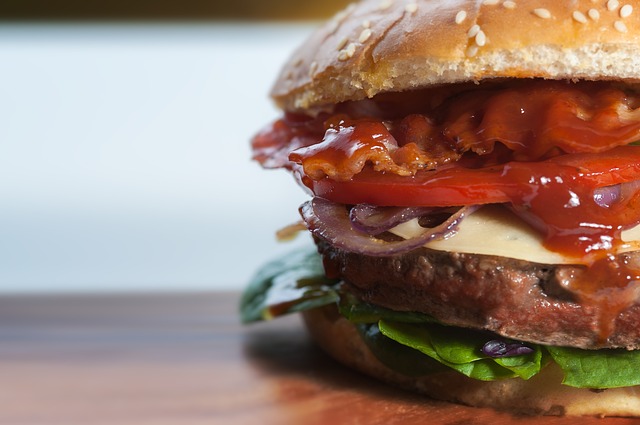Researchers in the MCC-Spain Study seek out the hazards associated with inflammatory and anti-oxidative diets.
Among the myriad of advertised diets to “lose weight in six weeks” or “restart your gut health”, striking a balance in a proper and nutritious diet can actually be quite difficult – especially in the western diet. This diet has been linked to many chronic diseases (such as obesity or heart disease) and inflammation. An inflammatory diet shares similar characteristics with the western diet, such as the consumption of refined carbohydrates, red or processed meat, and saturated or trans fat. In contrast, an antioxidant diet primarily consists of only vegetable, legume, fruit, and nut consumption.
Published in Nutrients, Dr. Mireia Obón-Santacana collaborated with researchers from various institutions and programs to identify the capacity an inflammatory and anti-oxidative state would have on colorectal cancer and breast cancer. To assess the inflammatory potential of an overall diet, the dietary inflammatory index (DII) was designed to provide quantitative data about an individual’s diet. The non-enzymatic antioxidant capacity (NEAC) was used to estimate the total dietary antioxidant content. Both tools were helpful in analyzing the self-reported data from participants.
Close to 2000 cases were examined for both colorectal cancer patients and breast cancer patients. Face to face interviews were conducted to determine the socio-demographic, lifestyle, environmental exposure, residential history, personal/family medical history, drug use, and weight information. Participants then self-reported details on their dietary lifestyle with the provided semi-quantitative food frequency questionnaire (FFQ). The FFQ offered information on portion sizes, food group intakes, alcohol consumption, and more.
When compared to the control group, the data showed that patients with colorectal cancer had a higher DII score – which indicates a more pro-inflammatory diet. These participants who were diagnosed with colorectal cancer and reported pro-inflammatory diet consumption were also older, heavier, less active, and had a lower education level. They also tended to have a family history of colorectal cancer. On the other hand, while some participants who were diagnosed with breast cancer had a higher DII score, there were no statically significant trends to suggest a causal relationship. Interestingly, the participants diagnosed with breast cancer who reported pro-inflammatory diets tended to be younger, premenopausal, more frequent smokers, and also have a family history of breast cancer.
Overall, the study concluded that a pro-inflammatory diet was clearly associated with an increased risk of colorectal cancer. the pro-inflammatory diet also seemed to have a greater effect in men than women. Possible foods that contributed to a high DII score included: energy, carbohydrates, protein, total fat, saturated fat, trans fat, cholesterol, vitamin B12, and iron. Many of the items are found in the western diet, and the researchers concluded that high adherence to such a diet would create a statistically significant increase in the risk of developing colorectal cancer.
However, it was noted that the study design was prone to selection and recall bias and the self-reported dietary data could have potentially led to errors in measurement. Nonetheless, more research with larger sample sizes are needed to further examine the relationship between pro-inflammatory and anti-oxidant diets, but the present study indicates a shift is needed in our eating patterns to reduce the incidence of this chronic disease.
According to Dr. Obón-Santacana, “We should reorient our eating habits towards a Mediterranean diet, rich in fruits and vegetables, nuts, whole grains and healthy oils, such as olive oil and move away from a more pro-inflammatory diet”.
Written by Stephanie Tsang, BHSc
References:
Obón-Santacana, et al. “Dietary Inflammatory Index, Dietary Non-Enzymatic Antioxidant Capacity, and Colorectal and Breast Cancer Risk (MCC-Spain Study).” Nutrients, vol. 11, no. 6, 2019, p. 1406., doi:10.3390/nu11061406.
Gemma. “Researchers from IDIBELL-ICO.” EurekAlert!, www.eurekalert.org/pub_releases/2019-07/ibri-aid071519.php.
Image by Pexels from Pixabay



